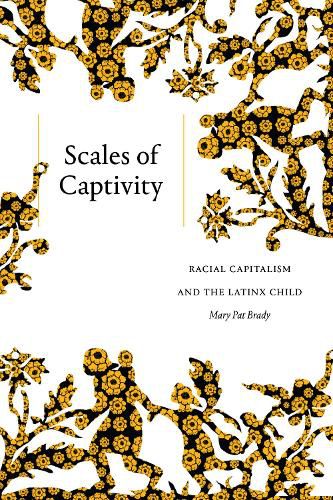Readings Newsletter
Become a Readings Member to make your shopping experience even easier.
Sign in or sign up for free!
You’re not far away from qualifying for FREE standard shipping within Australia
You’ve qualified for FREE standard shipping within Australia
The cart is loading…






In Scales of Captivity, Mary Pat Brady traces the figure of the captive or cast-off child in Latinx and Chicanx literature and art between chattel slavery’s final years and the mass deportations of the twenty-first century. She shows how Latinx expressive practices expose how every rescaling of economic and military power requires new modalities of capture, new ways to bracket and hedge life. Through readings of novels by Helena Maria Viramontes, Oscar Casares, Lorraine Lopez, Maceo Montoya, Reyna Grande, Daniel Pena, and others, Brady illustrates how submerged captivities reveal the way mechanisms of constraint such as deportability ground institutional forms of carceral modernity and how such practices scale relations by naturalizing the logic of scalar hierarchies underpinning racial capitalism. By showing how representations of the captive child critique the entrenched logic undergirding colonial power, Brady challenges racialized modes of citizenship while offering visions for living beyond borders.
$9.00 standard shipping within Australia
FREE standard shipping within Australia for orders over $100.00
Express & International shipping calculated at checkout
In Scales of Captivity, Mary Pat Brady traces the figure of the captive or cast-off child in Latinx and Chicanx literature and art between chattel slavery’s final years and the mass deportations of the twenty-first century. She shows how Latinx expressive practices expose how every rescaling of economic and military power requires new modalities of capture, new ways to bracket and hedge life. Through readings of novels by Helena Maria Viramontes, Oscar Casares, Lorraine Lopez, Maceo Montoya, Reyna Grande, Daniel Pena, and others, Brady illustrates how submerged captivities reveal the way mechanisms of constraint such as deportability ground institutional forms of carceral modernity and how such practices scale relations by naturalizing the logic of scalar hierarchies underpinning racial capitalism. By showing how representations of the captive child critique the entrenched logic undergirding colonial power, Brady challenges racialized modes of citizenship while offering visions for living beyond borders.